From the correspondent in Strasbourg – As expected, the official inauguration of Donald Trump as the 47th president of the United States has overwhelmed European politics., which has literally split into three camps: those who celebrate the return to the White House of a patriot, those who criticize the coming to power of the “radical right,” and those who try to downplay concerns and look at the glass half full.
Strategic alliance (but without compromise)
This approach is chosen by the two main political formations in the EU Parliament. On the sidelines of the ongoing plenary session in Strasbourg, European People’s Party (EPP) group leader Manfred Weber stressed today (Jan. 21) that Brussels’ task in the Trump-bis era will be to “cooperate and find common solutions” with Washington on issues affecting both sides of the Atlantic, such as “how to limit China’s global ambitions.”
“Let’s work together,” the president-owner of the Populars punctuated, “but let’s also show our strength” by fearlessly implementing our rules such as those on digital services—compiled in the DSA, the subject of another heated debate in the House, connected to the key role that X’s owner, Elon Musk, will play in the new U.S. administration. Above all, he pointed out, “we need strength and unity even in the face of possible tariffs” that Trump has been bragging about imposing on European imports.
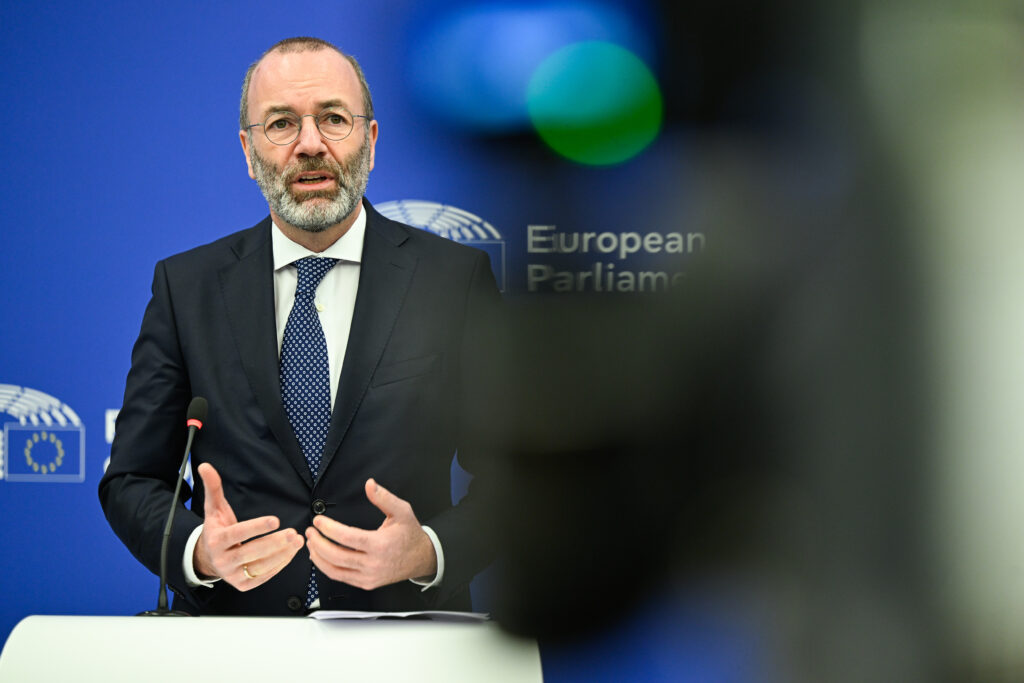
An approach also shared by the Polish presidency of the Council, represented here by Warsaw’s Minister of European Affairs Adam Szłapka: “We want to launch a constructive confrontation with the new administration,” he said, arguing that there is a need for “a collective reflection on how to sustain this partnership in all circumstances that certainly requires unity on both sides.” Speaking for the European Commission was Maroš Šefčovič, executive vice president for the Green deal: “The EU believes more than ever in this friendship” (on which, he said, more than 42 per cent of global GDP depends), but the EU executive “will not give an inch in defending European interests.”
Beware of values
On the same line are the Socialists (S&D), who show more caution, however. For group leader Iratxe García Pérez, “Trump’s arrival poses major challenges for us” and “the auspices are not positive but rather are worrying,” starting with the first measures taken yesterday by the new president, among which are the withdrawal of the United States from the Paris Climate Agreements and the World Health Organization (WHO) as well as a strengthening of migration policies.
“We need unity on the European side,” the Spaniard punctuated, “to strengthen our leadership globally and our strategic autonomy” while securing the Old Continent’s economy and industry from “threats” from the New York-based tycoon. “The U.S. is a strategic ally of the EU and vice versa,” he continued, “but our relations need to be clarified and based on mutual respect and the defence of multilateralism.”
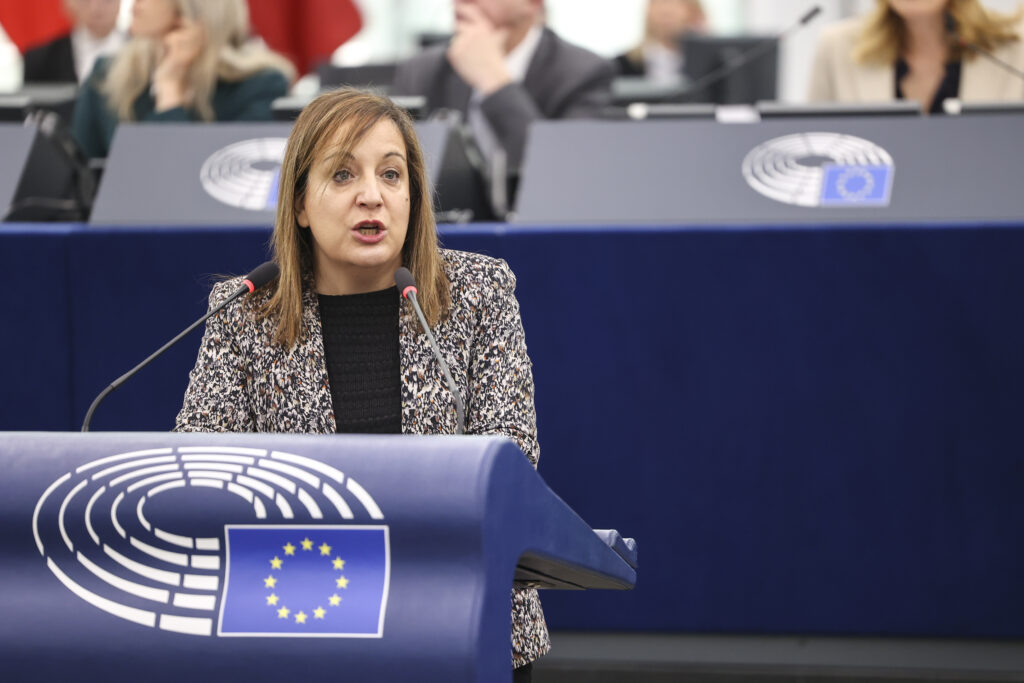
For PD MEP Brando Benifei, head of the hemicycle’s delegation for relations with the United States, “we must demand respect” from Washington, a message that “must be sent clearly” as it constitutes “the basis for a constructive relationship” between the two sides of the Atlantic. “Europe must be open to dialogue with the new administration but always aware of itself and its values,” he added, speaking during the plenary debate.
He was echoed by fellow party member and deputy whip of the Social Democrats in the House, Camilla Laureti: “We will be determined in defending the values and founding principles of the EU,” she said, because against Trump’s speech that “reflects the logic of closure and walls,” the Twenty-Seven must “build a political embankment to a drift that threatens to engulf global balances.”
Standing up to Trump
Even more critical comments came from liberals, environmentalists, and the radical left. “Donald Trump is back, and he already wants to turn the world upside down,” said Renew Valérie Hayer, group leader, complaining that during yesterday’s inauguration speech, “we heard about America first but no word about Europe, none about Ukraine.”
Transatlantic relations should be strong in the interest of both the U.S. and the EU, she argued. Still, we are facing “a new era of reactionary policies” ranging from climate denialism to strict reproductive and sexual rights. Passing through “protectionism and the trade war” with which the new White House tenant threatens the Twenty-Seven, in the face of which Brussels must “raise its voice”: “Trump is playing arm wrestle, and we will have to play along,” he announced.
For the Greens (Greens/EFA) co-leader Terry Reintke, “the second Trump presidency will do even more damage than the previous one,” and the new U.S. leader “wants to attack the world order, the rule of law, democracy, human rights.” She goes so far as to claim that both the tycoon and Russian President Vladimir Putin “attack our democracies and our electoral integrity,” referring to Musk’s meddling in the upcoming German elections in favour of the ultra-right Alternative für Deutschland. For his counterpart Bas Eickhout, under the new administration, the star-spangled one “is no longer the classical ally with whom we can dialogue.”
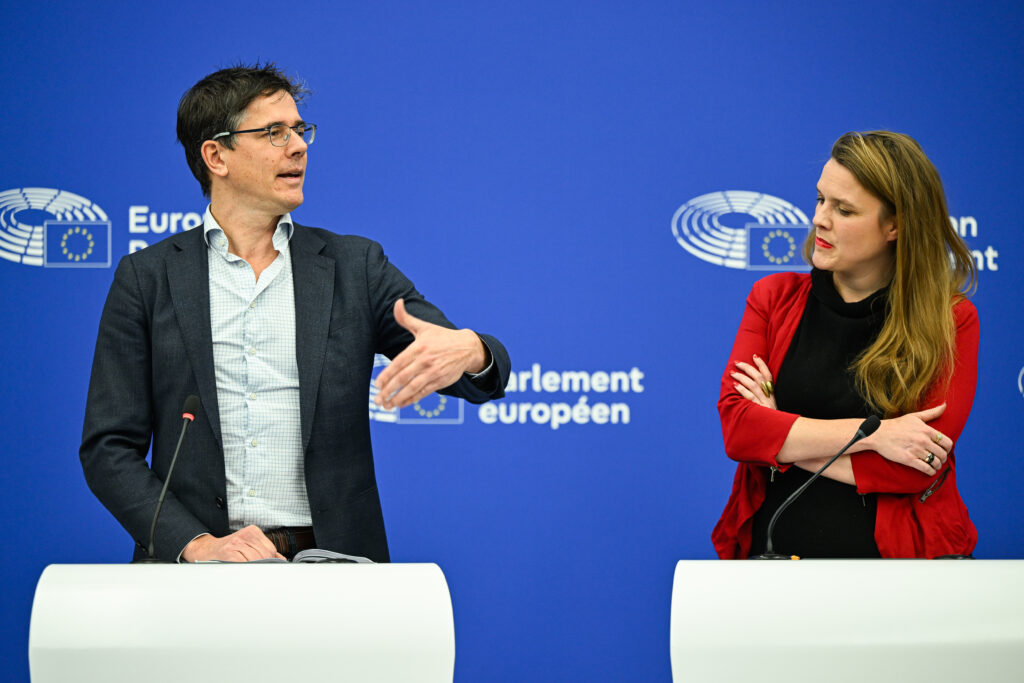
Trump’s inauguration is “a threat that weighs on the entire EU,” according to Left (The Left) co-leader Manon Aubry. An EU that, she says, “is ridiculing itself” and runs the risk of becoming the “puppet” of the new president: instead of a call for a deepening of transatlantic relations, she argues, “there needed to be a firm condemnation by European leaders” in the face of Trump’s bragging about the annexation of Greenland and Musk’s impatience with the rules Brussels has drawn up for digital giants. “The EU must regain its independence” from Washington, he concluded, “and address the threats posed by the United States to the international balance” because the Old Continent “is not a Far West without rules.”
Reactionary International?
In addition to the need to defend the European economy and industry, another recurring point in the reactions of the political groups in the chamber—at least those ranging from the EPP toward the left—was the red (or rather black) thread that unravels from the White House to the headquarters of the far-right here. For García Pérez, “it is certainly not a good thing that Trump did not invite any leader of the EU institutions” to the inauguration ceremony but has instead welcomed in large numbers “single members of the European far right,” a clear sign of the political trajectory of the new administration. Incidentally, the only European head of government was the Italian premier, Giorgia Meloni, reflecting the personal relationship forged with the tycoon and his right-hand man, Musk.
Eickhout warned against what he called “the extreme right-wing ignoring science,” while Hayer pointed out that during the inauguration speech, “we heard a reactionary, authoritarian, radical” and even “imperialist” president. According to Aubry, “it’s going to be a year of resistance” against an administration whose members perform “Nazi greetings” (Musk appeared to be making a Roman salute during yesterday’s inauguration ceremony)—that, given the rightward lurch that has also occurred in Europe, risks turning transatlantic relations into “a reactionary international.”
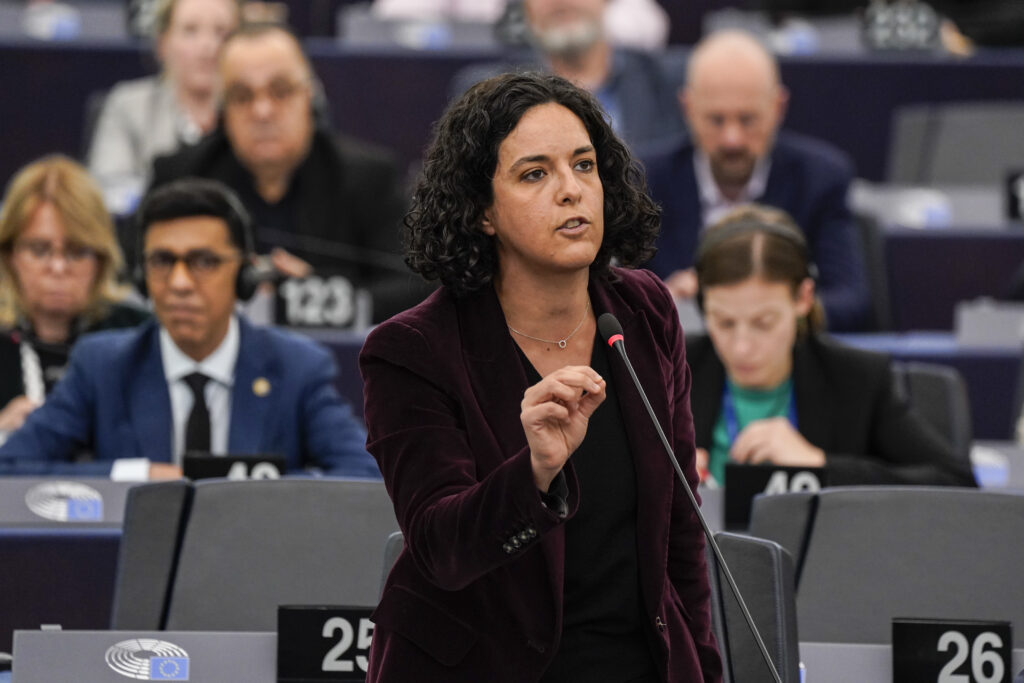
Finally, even from the Populars came a warning to the new U.S. president through group leader Weber that “the Patriots are not really America’s friends and partners,” as they are actually “close friends of Putin.” The lunge of the Bavarian politician—a member of that Christian Democratic Union (CDU/CSU) which, according to all polls, will express in the person of leader Friedrich Merz the next federal chancellor in Berlin—focused mainly against the AfD (the post-Nazi ultra-right and pro-Russian German who, however, is not part of the Patriots but of the Europe of Sovereign Nations), calling it “Putin’s speaker.”
Who’s with Trump
Not everyone is hostile to Trump, however. For Conservatives and Reformists (ECR) co-chair Nicola Procaccini, “the new president is a conservative leader; we are a conservative group, so we have much in common” in our respective political agendas. Also, according to his counterpart Patryk Jaki, “ECR shares several priorities with the Trump administration, including security, economic growth, and migration that must be legal.”
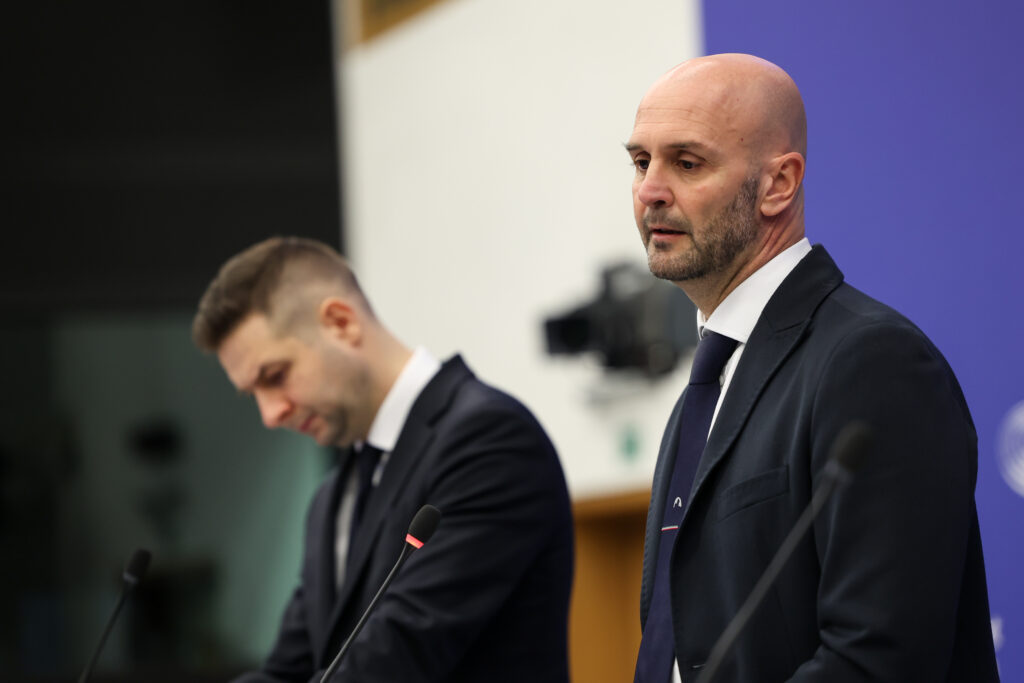
The head of Fratelli d’Italia’s delegation in Strasbourg, Carlo Fidanza, hailed Trump’s re-election as “a very strong slap in the face” to the left that “ends the woke hegemony, demolishes gender ideology, and restores freedom of expression on social media.” In addition, for the Melonian patrol leader, “the Trump presidency offers us an opportunity to realign our industrial choices toward the Atlantic instead of handing ourselves over hand and foot to China with the ideological follies that polluted the Green deal with all due respect to the much-vaunted strategic autonomy.” “Yesterday, a new America was born; now it is time for a new Europe to be born,” he concluded.
The Patriots’ speeches were also in line with those of the Conservatives. According to Leghist MEP Isabella Tovaglieri, we should adopt “Trump’s recipe” and make Europe great again. Trump’s resolutions would be “common-sense phrases that I think every European would like to hear here as well.”
English version by the Translation Service of Withub








